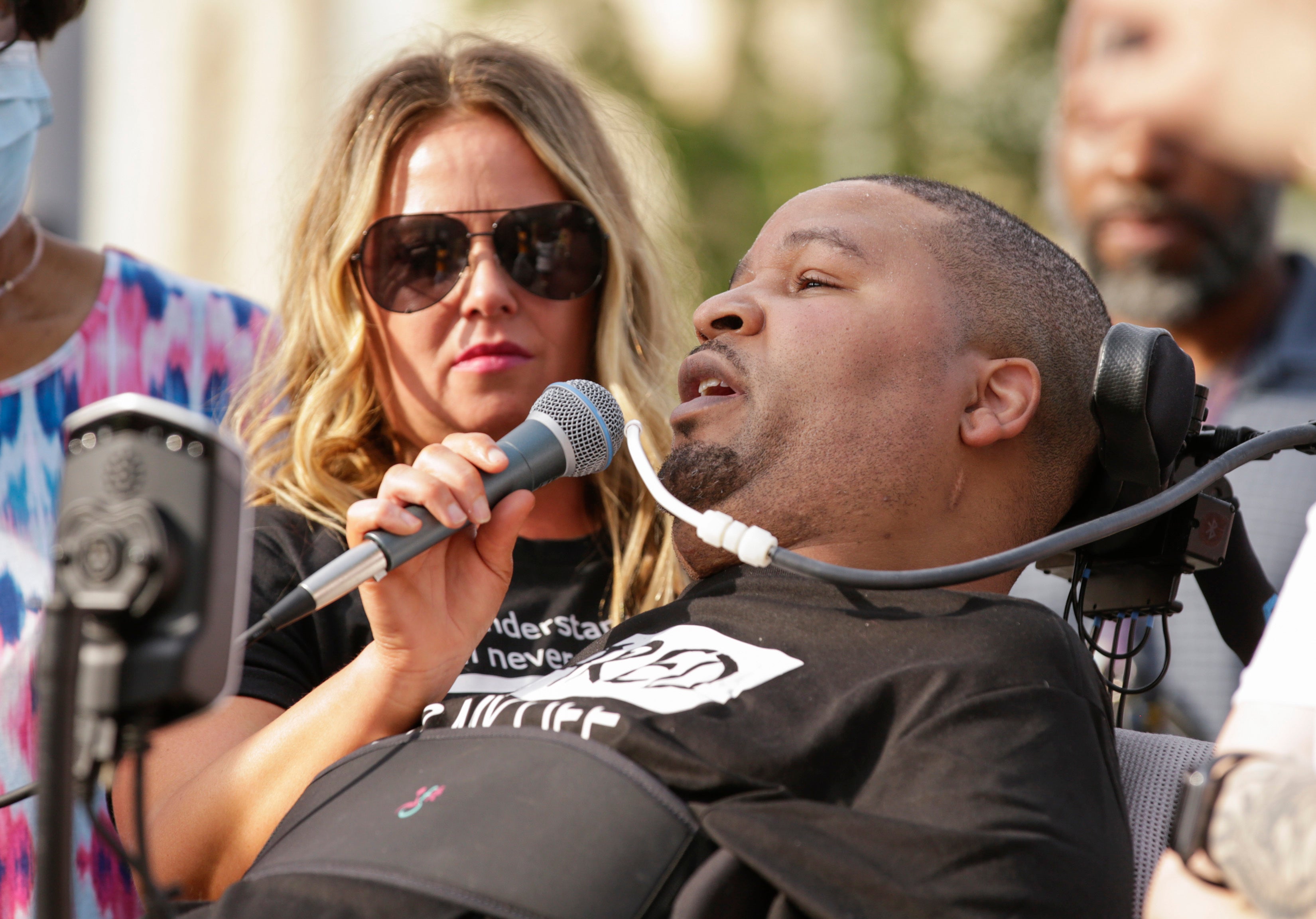Insurer to pay $8M to Black man paralyzed by Iowa officer
An insurance company for the City of Cedar Rapids will pay $8 million to a Black motorist who was paralyzed after a white police officer shot him during a 2016 traffic stop

Your support helps us to tell the story
From reproductive rights to climate change to Big Tech, The Independent is on the ground when the story is developing. Whether it's investigating the financials of Elon Musk's pro-Trump PAC or producing our latest documentary, 'The A Word', which shines a light on the American women fighting for reproductive rights, we know how important it is to parse out the facts from the messaging.
At such a critical moment in US history, we need reporters on the ground. Your donation allows us to keep sending journalists to speak to both sides of the story.
The Independent is trusted by Americans across the entire political spectrum. And unlike many other quality news outlets, we choose not to lock Americans out of our reporting and analysis with paywalls. We believe quality journalism should be available to everyone, paid for by those who can afford it.
Your support makes all the difference.An insurance company for the City of Cedar Rapids will pay $8 million to a Black motorist who was paralyzed after a white police officer shot him during a 2016 traffic stop, both sides announced Monday.
The payout will settle a long-running lawsuit brought by Jerime Mitchell, 42, over a shooting that had exposed tensions between Black residents and authorities in Iowa’s second largest city.
The resolution avoids a trial that had been scheduled to begin Tuesday, as the nation awaits a verdict in the trial of a former Minneapolis police officer charged with killing George Floyd
The payment is expected to be the most expensive settlement over allegations of excessive force by police in Iowa’s history.
The city had spent hundreds of thousands of dollars in legal fees defending against the lawsuit and arguing that Officer Lucas Jones acted lawfully in shooting Mitchell. A city spokeswoman said in a statement that it was fully prepared for trial but its insurer, States Insurance, had control over whether to settle under its policy and “determined settlement to be in the best interests of its insured, the city."
The city said that it admitted no wrongdoing as part of the settlement and that its review determined Jones “acted properly” given the facts and circumstances of the stop.
“The case has been divisive to our community and it is our hope that we can continue to enhance relationships that build trust between our community and our police department,” said the statement, issued by spokeswoman Maria Johnson. “We all share the desire for a safe community.”
An attorney for Mitchell and his wife said the settlement will help pay for Mitchell's future health care needs but he said the “most significant result” was helping spur the firing of Jones as an officer.
“Deadly force was not justified here,” said the attorney, Larry Powers of Chicago
Mitchell had attended rallies in his wheelchair last summer in the wake of Floyd's death opposing police brutality and racial injustice. Activists then renewed their calls for the firing of Jones, who remained on the force and had fatally shot an armed white suspect a year before shooting Mitchell in the neck.
The Cedar Rapids Police Department fired Jones last June, but not for either shooting. Instead, the department said that Jones was fired for his handling of a traffic stop the day before shooting Mitchell in which he let a young Black mother go instead of arresting her for driving while suspended, as required by policy.
The city opened an investigation into that stop after Jones testified in a 2020 deposition during the Mitchell case that he turned off his body microphone “because I was violating a policy.”
Jones pulled over Mitchell early on Nov. 1, 2016, near Coe College, claiming Mitchell’s license plate light was not working.
Police have said Jones asked Mitchell to get out of the vehicle after smelling marijuana. Mitchell resisted being handcuffed and Jones pushed him against the truck and took him to the ground. Mitchell got up with the officer on his back and a police dog engaging him, and got in his truck and begin to drive away.
As he clung to the moving truck, Jones fired three times, with one bullet striking Mitchell in the neck. Authorities have said Mitchell was immediately paralyzed and unable to control the vehicle as it accelerated to 60 mph (97 kph) and smashed into an oncoming police SUV driven by the city's deputy police chief, who was responding to Jones' call for backup and suffered only minor injuries.
A grand jury declined to charge Jones, and authorities argued he shot in self-defense.